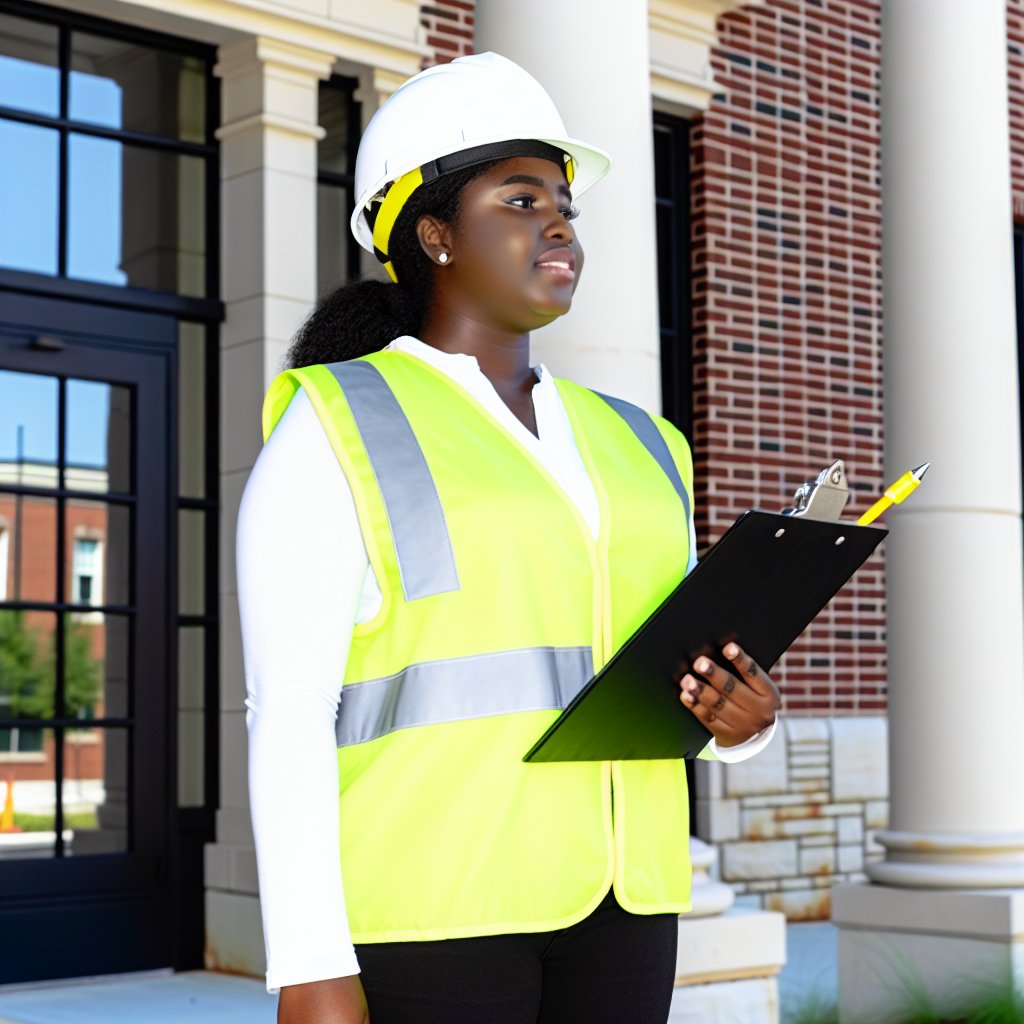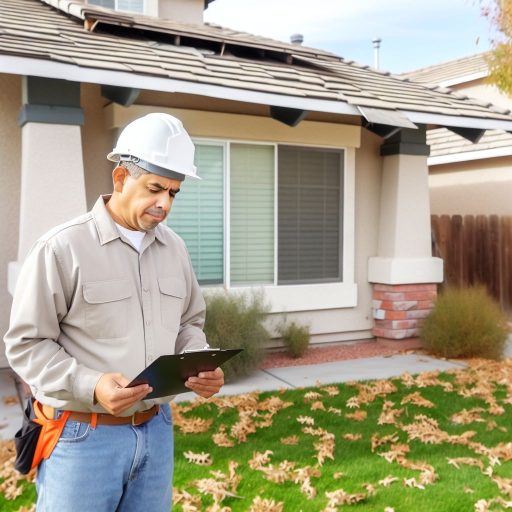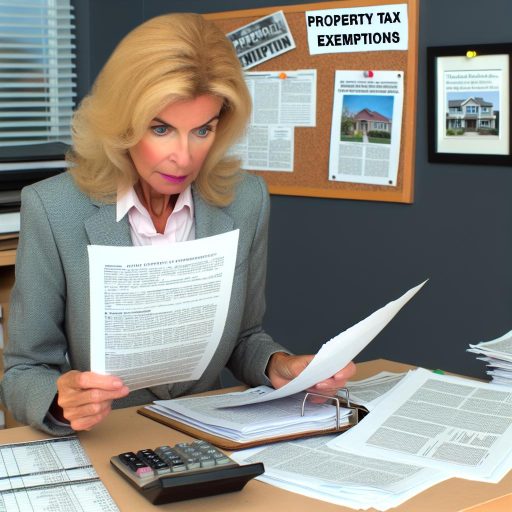Introduction to Property Inspections for Commercial Buildings
Property inspections play a crucial role in managing commercial buildings.
These inspections ensure that properties meet safety and regulatory standards.
They also help identify potential maintenance issues before they escalate.
Moreover, property inspections can enhance the value of a building.
Tenants and buyers prefer well-maintained properties with clear inspection reports.
Importance of Property Inspections
Regular inspections can prevent costly repairs in the future.
They allow property managers to address issues proactively.
This practice fosters a safe environment for tenants and visitors.
Additionally, it helps maintain compliance with local regulations.
In many cases, insurers require inspections to provide coverage.
Components of a Commercial Property Inspection
Inspections typically cover various aspects of a building.
Structural integrity is one major focus area during assessments.
Inspectors evaluate roofing, walls, and foundations for damage.
Moreover, they assess electrical and plumbing systems for functionality.
HVAC systems also receive thorough evaluations to ensure efficiency.
Finally, safety systems like fire alarms and exits are checked.
Types of Property Inspections
Different types of inspections serve specific purposes.
Initial inspections assess a building’s condition before occupancy.
Routine inspections are conducted regularly to monitor ongoing conditions.
Specialized inspections, such as environmental assessments, address unique concerns.
Pre-purchase inspections help potential buyers understand property condition.
Selecting a Qualified Inspector
Choosing the right inspector is vital for accurate assessments.
Look for inspectors with relevant certifications and experience.
Ask for references to ensure the inspector has a good reputation.
Additionally, clarify the inspection process and fees upfront.
Effective communication with the inspector enhances overall results.
Importance of Property Inspections in Commercial Real Estate
Identifying Potential Issues
Property inspections reveal potential issues in commercial buildings.
These inspections identify structural problems and safety hazards.
Additionally, they help uncover code violations and health risks.
Investors can make informed decisions based on these findings.
Ensuring Compliance with Regulations
Compliance with local regulations is crucial for commercial properties.
Inspections verify adherence to building codes and safety standards.
Non-compliance can result in costly fines and penalties.
Regular inspections ensure properties meet all legal requirements.
Enhancing Property Value
Regular property inspections can enhance overall value.
Identifying maintenance needs allows for timely repairs.
Addressing issues promptly prevents costly future repairs.
Well-maintained properties attract quality tenants and buyers.
Facilitating Smooth Transactions
Property inspections are essential during transactions.
Buyers rely on inspections to assess property conditions.
Transparent inspection reports build trust between parties.
Ultimately, this leads to smoother negotiations and fewer disputes.
Investing with Confidence
Conducting property inspections mitigates investment risks.
Investors gain clarity on potential expenses and challenges.
This knowledge enables better financial planning and budgeting.
Consequently, informed decisions lead to successful investments.
Types of Property Inspections for Commercial Buildings
General Building Inspections
General building inspections assess the overall condition of the property.
Inspectors examine structural integrity, roof condition, and wall stability.
They also review plumbing, electrical systems, and HVAC functionality.
This inspection identifies immediate repair needs that may arise.
Furthermore, it helps forecast potential maintenance costs.
Environmental Assessments
Environmental assessments focus on the site’s environmental compliance.
They evaluate factors such as soil contamination and water quality.
Inspectors check for hazardous materials like asbestos or lead paint.
This type of inspection is critical for health and safety standards.
Moreover, it can affect property value and resale potential.
Leak Detection Inspections
Leak detection inspections locate hidden water leaks within the building.
These inspections utilize specialized equipment to identify moisture sources.
They help prevent extensive water damage and mold growth.
Catching leaks early can save significant repair costs.
Additionally, it improves overall building health and safety.
Fire Safety Inspections
Fire safety inspections assess compliance with fire codes and regulations.
Inspectors check fire alarms, sprinklers, and emergency exits.
They ensure that proper signage and firefighting equipment are in place.
Regular inspections help mitigate the risk of fire hazards.
Ultimately, this protects both occupants and property value.
Energy Efficiency Audits
Energy efficiency audits analyze energy consumption patterns in the building.
Inspectors look for areas to improve energy use and reduce costs.
This can involve evaluating insulation, windows, and appliances.
Implementing recommendations increases sustainability and lowers expenses.
Additionally, it can enhance the building’s marketability.
Explore Further: Legal Guidelines for Screening and Rejecting Tenants
Property Inspections for Commercial Buildings
Key Areas to Inspect
Structural Systems
A thorough inspection of structural systems is critical.
These components ensure the building’s integrity and safety.
Inspectors should check for any signs of damage or wear.
A well-structured foundation is essential for stability.
Look for cracks, bowing walls, or shifting foundations.
Additionally, ensure that load-bearing elements are secure.
Mechanical Systems
The mechanical systems in a building include HVAC and plumbing.
Regular inspections can help identify potential issues early.
Check HVAC units for maintenance records and functionality.
Inspect ductwork for leaks and insulation issues.
Additionally, pay attention to plumbing systems and fixtures.
Look for leaks, corrosion, and backups in drainage systems.
Electrical Systems
Electrical systems are another vital area for inspection.
Inspectors should assess wiring, circuit breakers, and panels.
Look for signs of wear or outdated components.
Ensure that all electrical systems meet current codes.
Test fire alarms and emergency exits for functionality.
Additionally, check for adequate lighting in all areas.
Explore Further: Property Inspections for Real Estate Investors
Common Issues Detected During Property Inspections
Structural Issues
Inspectors often identify structural deficiencies in buildings.
Common problems include cracks in the foundation.
Additionally, walls may show signs of bowing or settlement.
Roof sagging is another critical issue found during inspections.
Electrical System Concerns
Faulty electrical systems frequently raise safety alarms.
Inspectors look for outdated wiring and overloaded circuits.
They also assess whether outlets are properly grounded.
Moreover, inadequate lighting can signal potential hazards.
HVAC System Problems
Heating, ventilation, and air conditioning systems often require attention.
Inspectors check for insufficient heating or cooling efficiency.
Additionally, they inspect ductwork for leaks and blockages.
Failure to maintain systems can lead to costly repairs.
Plumbing Issues
Plumbing problems are among the most frequent findings.
Inspectors often discover leaks, which can cause water damage.
Clogged drains and malfunctioning fixtures also pose risks.
Furthermore, outdated piping materials may need replacement.
Environmental Concerns
Inspections often reveal environmental issues that require attention.
Inspectors look for signs of mold, which can affect indoor air quality.
They also assess for hazardous materials like asbestos or lead.
Proper mitigation strategies are essential for safe environments.
Interior and Exterior Maintenance
Inspectors evaluate the overall maintenance of buildings.
Exterior issues may include peeling paint and damaged siding.
Indoors, worn flooring and stained ceilings typically signal neglect.
Regular maintenance improves property value and appeal.
Discover More: Privacy Laws and Tenant Rights in Rental Properties

The Role of Professional Inspectors in Commercial Real Estate
Ensuring Compliance and Safety
Professional inspectors play a crucial role in ensuring compliance and safety in commercial real estate.
They evaluate properties against local building codes and standards.
This protects the tenants and the property owner from potential liabilities.
Additionally, they identify potential hazards within the building.
These hazards may include structural issues and unsafe materials.
By addressing these issues, inspectors help maintain a safe environment.
Identifying Structural Deficiencies
Understanding a building’s structure is essential for its longevity.
Inspectors thoroughly assess elements like foundations and roofs.
They look for signs of wear, damage, or inadequate repairs.
This assessment prevents costly repairs in the future.
Moreover, it helps in evaluating the overall health of the property.
Evaluating Systems and Utilities
A comprehensive inspection includes evaluating various systems.
These systems encompass electrical, plumbing, and HVAC components.
Inspectors ensure these systems function efficiently and safely.
They identify any potential failures or needed upgrades.
Addressing these concerns improves tenant comfort and satisfaction.
Documenting Findings for Stakeholders
Professional inspectors provide detailed reports of their findings.
These reports serve as essential documentation for all stakeholders.
Investors, property managers, and tenants benefit from transparent communication.
Reports highlight areas requiring immediate attention and potential risks.
This documentation supports informed decision-making regarding the property.
Enhancing Property Value
Regular inspections can enhance the overall value of a commercial building.
By maintaining compliance and addressing deficiencies, properties remain attractive.
This, in turn, can lead to higher rental rates and lower vacancy rates.
Furthermore, a well-maintained property reduces the risk of unexpected expenditures.
Ultimately, it fosters a positive reputation in the market.
You Might Also Like: Effective Strategies for Managing Property Maintenance Requests
Legal and Compliance Considerations in Property Inspections
Understanding Local Regulations
Every locality has specific regulations regarding property inspections.
First, familiarize yourself with the local codes and ordinances.
These regulations often dictate the inspection process and requirements.
Additionally, some areas may require specialized licensing for inspectors.
Environmental Health Compliance
Ensure that your property inspection adheres to environmental regulations.
Local governments may enforce laws related to hazardous materials.
This includes checking for asbestos, lead, and mold in commercial buildings.
Understanding these regulations protects both the inspector and the property owner.
Occupational Safety and Health Administration (OSHA) Standards
Property inspections must also comply with OSHA standards.
Inspectors should identify any potential hazards on the property.
This includes evaluating worker safety precautions and emergency exits.
OSHA guidelines help prevent accidents during property evaluations.
Liability Insurance Requirements
Having liability insurance is crucial for property inspectors.
This coverage protects against claims arising during inspections.
Filter through different policies to find what best suits your needs.
Consult with an insurance professional to evaluate your options.
Documentation and Record Keeping
Thorough documentation is essential for compliance and legal protection.
Maintain detailed records of all inspections conducted.
Include photographs, notes, and any correspondence with property owners.
Good record-keeping practices enhance transparency and accountability.
Client Communication and Consent
Always communicate clearly with clients about inspection processes.
This includes explaining the scope and objectives of the inspection.
Obtain written consent before proceeding with any inspection services.
Clear communication fosters trust and minimizes disputes later.
Post-Inspection Steps: Analyzing Reports and Making Decisions
Understanding Inspection Reports
Inspection reports provide essential information about the property condition.
First, identify key findings in the report.
Next, review any images or diagrams included.
Pay attention to any recommendations made by the inspector.
Moreover, consider the implications of each finding.
Prioritizing Issues
Start by categorizing issues as major or minor.
Major issues require immediate attention and should be addressed first.
Minor issues can be scheduled for resolution at a later date.
Additionally, consider the potential impact on business operations.
Consulting with Professionals
Engage professionals to clarify complex findings.
Consult a structural engineer for major structural concerns.
Likewise, seek a licensed contractor for renovation advice.
This guarantees that decisions are based on expert insights.
Formulating an Action Plan
Develop a clear action plan based on prioritized issues.
Assign responsibilities to relevant team members.
Furthermore, establish a timeline for addressing each issue.
Ensure all stakeholders are aware of their roles and duties.
Budgeting for Repairs
Create a budget for necessary repairs and maintenance.
Consider both immediate and long-term financial impacts.
Evaluate potential costs against the operational budget.
Adjust the budget as needed based on updated inspection data.
Documenting Decisions
Maintain thorough records of all decisions made.
Document the reasoning behind each decision for future reference.
Furthermore, keep copies of communications with contractors and inspectors.
This documentation can serve as a valuable resource later.




